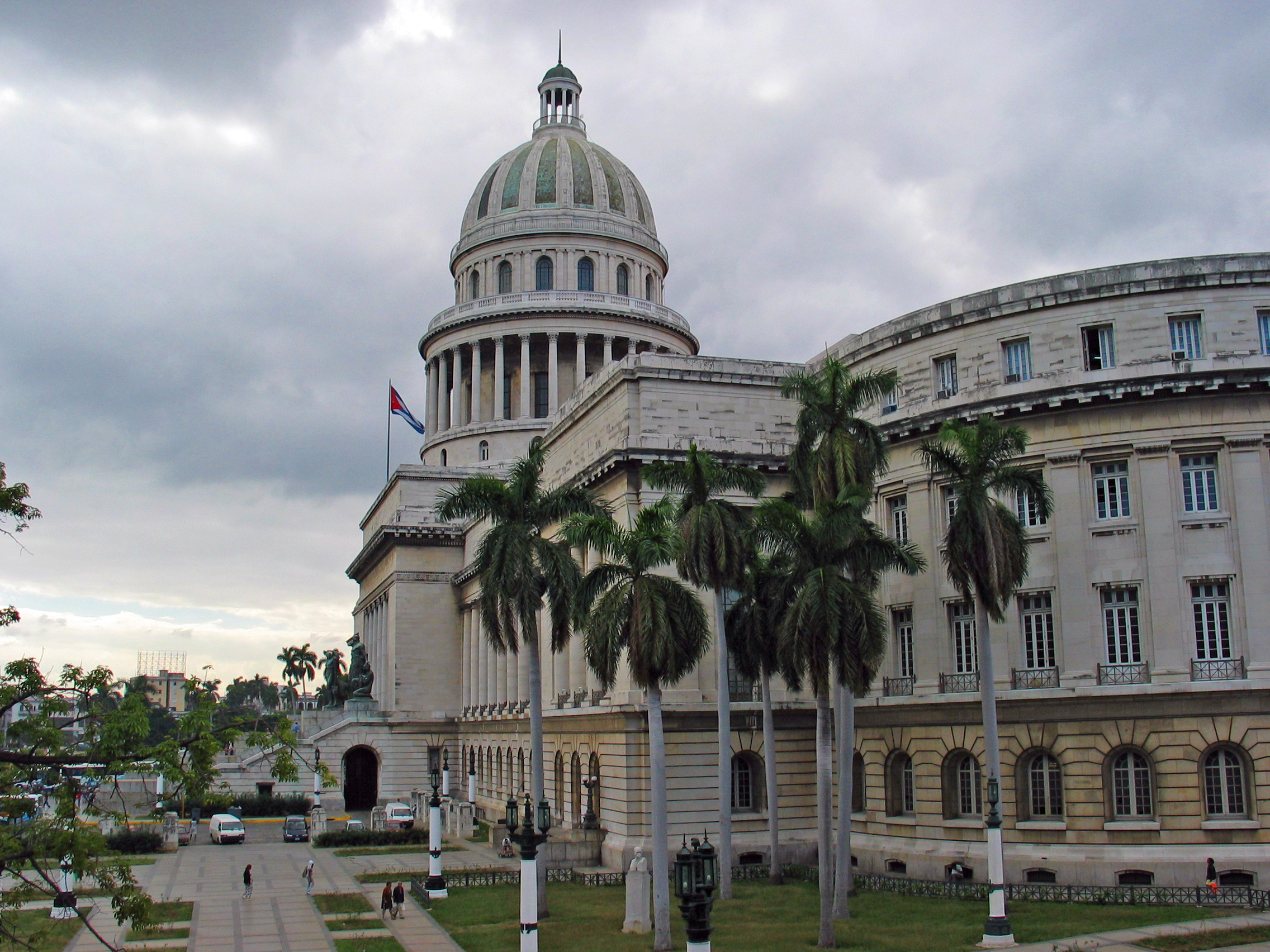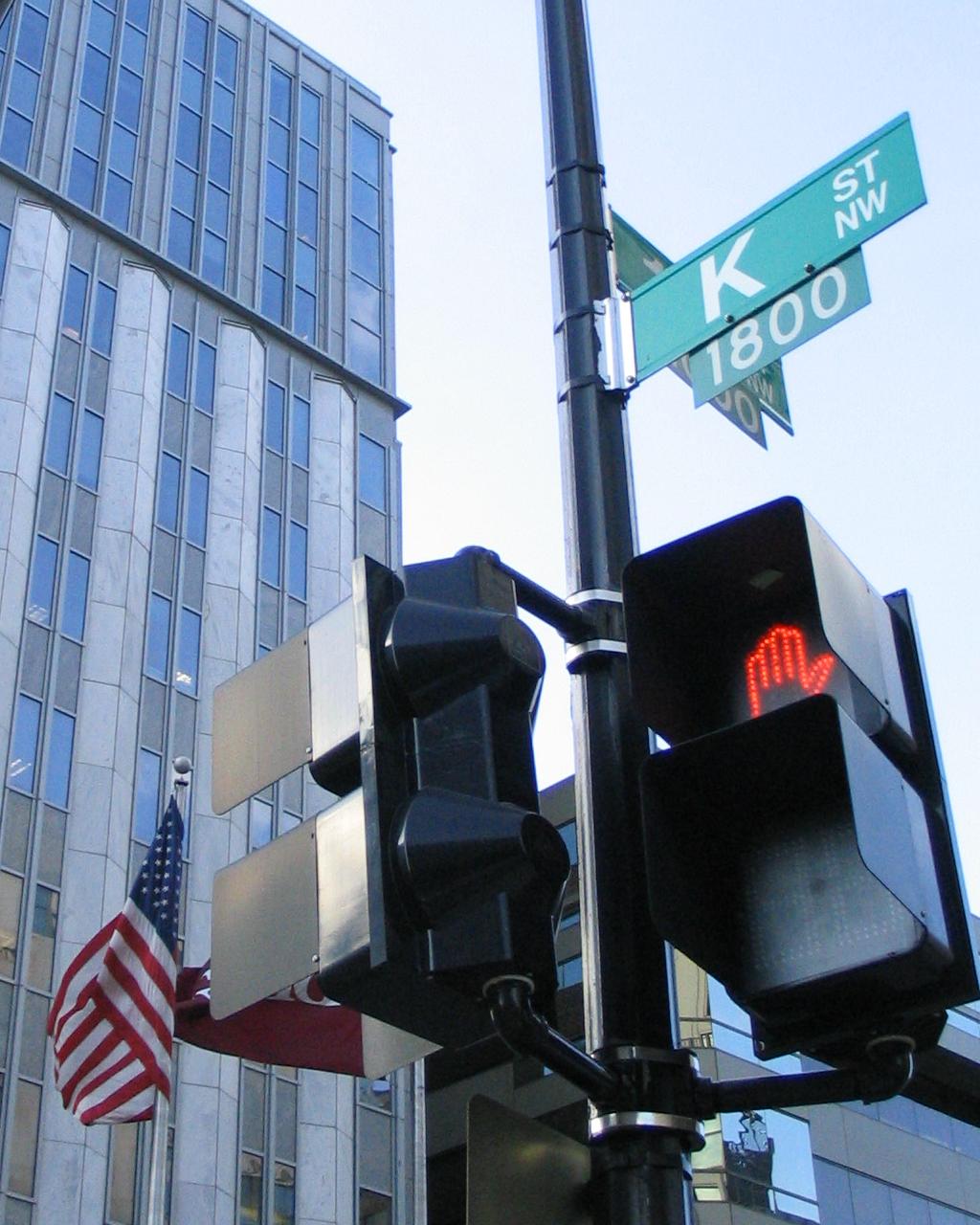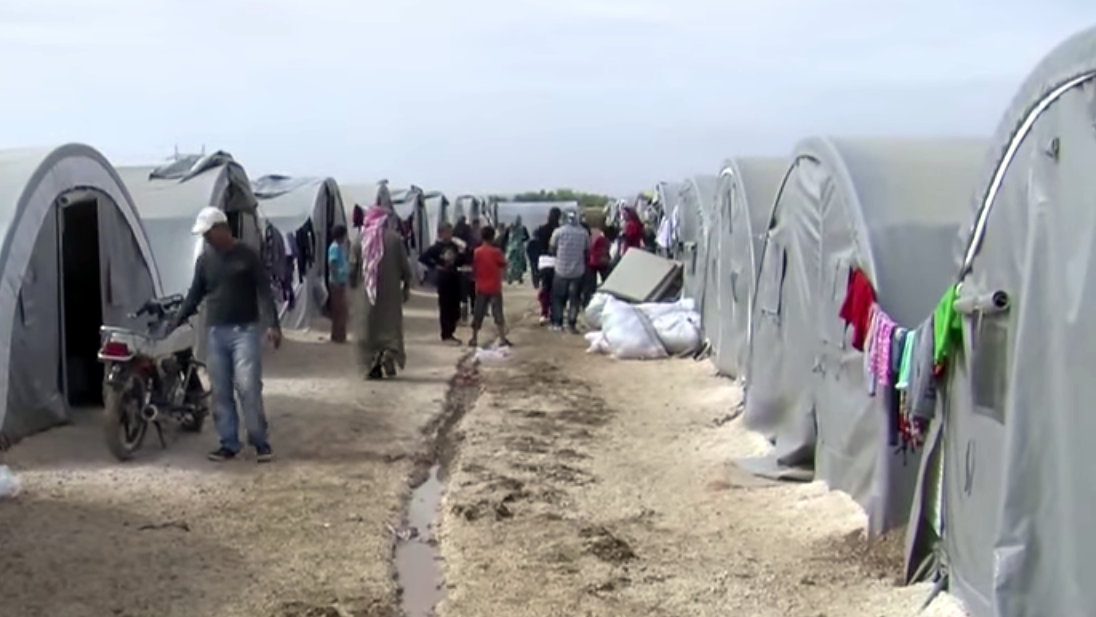|
Cuban Liberty Council
The Cuban Liberty Council (CLC) is a nonprofit organization whose stated goal is to promote liberty and democracy in Cuba. Activities CLC was founded in October 2001. Many of the members of the CLC's Board of Directors and Executive Committee have played key roles in shaping U.S. policy towards Cuba and have led diplomatic delegations to the United Nations Human Rights Commission, where they achieved the passage of key United Nations resolutions condemning Fidel Castro's human rights record. They have also played a role in advising foreign governments on their Cuba policy and have met with numerous world leaders, including Václav Havel, Lech Wałęsa, Ronald Reagan, Boris Yeltsin, George H. W. Bush, George W. Bush, José María Aznar, Ernesto Zedillo, and Felipe González. CLC has been called a "hard-line" organization due to its staunch opposition to weakening the U.S. embargo against Cuba.Isabelle Vagnoux, 'Washington-Miami-Havana 1999-2009: Towards the End of a Ménage à Tro ... [...More Info...] [...Related Items...] OR: [Wikipedia] [Google] [Baidu] |
Cuba
Cuba, officially the Republic of Cuba, is an island country, comprising the island of Cuba (largest island), Isla de la Juventud, and List of islands of Cuba, 4,195 islands, islets and cays surrounding the main island. It is located where the northern Caribbean Sea, Gulf of Mexico, and Atlantic Ocean meet. Cuba is located east of the Yucatán Peninsula (Mexico), south of both Florida and the Bahamas, west of Hispaniola (Haiti/Dominican Republic), and north of Jamaica and the Cayman Islands. Havana is the largest city and capital. Cuba is the List of countries and dependencies by population, third-most populous country in the Caribbean after Haiti and the Dominican Republic, with about 10 million inhabitants. It is the largest country in the Caribbean by area. The territory that is now Cuba was inhabited as early as the 4th millennium BC, with the Guanahatabey and Taino, Taíno peoples inhabiting the area at the time of Spanish colonization of the Americas, Spanish colonization ... [...More Info...] [...Related Items...] OR: [Wikipedia] [Google] [Baidu] |
United States Embargo Against Cuba
The United States embargo against Cuba is the only active embargo within the United States which has prevented U.S. businesses from conducting trade or commerce with Cuban interests since 1958. Modern Cuba–United States relations, diplomatic relations are cold, stemming from historic conflict and divergent political ideologies. U.S. economic sanctions against Cuba are comprehensive and impact all sectors of the Economy of Cuba, Cuban economy. It is the most enduring Economic sanctions#History of sanctions, trade embargo in modern history. The U.S. government influences Extraterritoriality, extraterritorial trade with Cuba. The U.S. government first launched an arms embargo against Cuba in 1958 during the U.S.-backed Fulgencio Batista regime. The Cuban Revolution saw nationalization, high U.S. imports taxes, and forfeiture of U.S.-owned economic assets, including oil refineries, without compensation. The U.S. retaliated in 1960 with total embargo on Cuban trade, with exception ... [...More Info...] [...Related Items...] OR: [Wikipedia] [Google] [Baidu] |
Cuban-American Lobby
Cuban Americans ( or ) are Americans who immigrated from or are descended from immigrants from Cuba. As of 2023, Cuban Americans were the fourth largest Hispanic and Latino American group in the United States after Mexican Americans, Stateside Puerto Ricans and Salvadoran Americans. Many metropolitan areas throughout the United States have significant Cuban American populations.Cuban Ancestry Maps , epodunk.com, accessed March 31, 2011. (2,000,000 in 2023) has the highest concentration of Cuban Americans in the United States. Over 1.2 million Cuban Americans reside in |
Lobbying In The United States
Lobbying in the United States is paid activity in which special interest groups hire well-connected professional advocates, often lawyers, to argue for specific legislation in decision-making bodies such as the United States Congress. It is often perceived negatively by journalists and the American public; critics consider it to be a form of bribery, influence peddling, or extortion.Robert Reich, June 9, 2015, Salon magazineRobert Reich: Lobbyists are snuffing our democracy, one legal bribe at a time Retrieved May 30, 2017, "...This second scandal is perfectly legal but it's a growing menace ... the financial rewards from lobbying have mushroomed, as big corporations and giant Wall Street banks have sunk fortunes into rigging the game to their advantage...."Mike Masnick, April 12, 2012, Tech DirtIs Lobbying Closer To Bribery... Or Extortion? Retrieved May 30, 2017, Lobbying is subject to complex rules which, if not followed, can lead to penalties including jail. Lobbying has be ... [...More Info...] [...Related Items...] OR: [Wikipedia] [Google] [Baidu] |
Ethnic Interest Groups In The United States
Ethnic interest groups in the United States are ethnic interest groups within the United States which seek to influence the foreign policy and, to a lesser extent, the domestic policy of the United States for the benefit of the foreign "ethnic kin" or homeland with whom the respective ethnic groups identify. Ambrosio, Thomas. 2002. "Ethnic identity groups and U.S. foreign policy." Praeger Publishers. Historic development "Being a country founded and populated by immigrants, the United States has always contained groups with significant affective and political ties to their national homeland and their ethnic kin throughout the world." Many commentators when discussing the influence of ethnic interest groups tend to focus on new entrants to the competition for influence while accepting that the historic role that the Anglo-Saxon ethnic group had is no longer influencing, the foreign policy of the United States. According to the Anglo authors as it usually is it was the Unite ... [...More Info...] [...Related Items...] OR: [Wikipedia] [Google] [Baidu] |
Diaspora Politics In The United States
A diaspora ( ) is a population that is scattered across regions which are separate from its geographic place of birth, place of origin. The word is used in reference to people who identify with a specific geographic location, but currently reside elsewhere. Notable diasporic populations include the Jewish Diaspora formed after the Babylonian exile; Assyrian diaspora following the Sayfo, Assyrian genocide; Greeks that fled or were displaced following the fall of Constantinople and the later Greek genocide as well as the Istanbul pogroms; the emigration of Anglo-Saxons (primarily to the Byzantine Empire) after the Norman Conquest, Norman Conquest of England; the Chinese people, southern Chinese and South Asian diaspora, South Asians who left their homelands during the 19th and 20th centuries; the Irish diaspora after the Great Famine (Ireland), Great Famine; the Scottish diaspora that developed on a large scale after the Highland Clearances, Highland and Lowland Clearances; Romani ... [...More Info...] [...Related Items...] OR: [Wikipedia] [Google] [Baidu] |
Ninoska Pérez Castellón
Ninoska Pérez Castellón (born 1950) is a prominent member of the Cuban exile community in Miami, and outspoken opponent of Fidel and Raúl Castro. In relation to this mission of hers, she was one of the founding members of the Cuban Liberty Council with her husband Roberto Martin Perez. She is a notable Spanish radio talk show host and political commentator on Radio Mambi and Radio Martí. She is also an occasional columnist for the ''Miami Herald''. Early life She was born Lucrecia Ninoska Pérez Castellón in Havana, Cuba on March 15, 1950. Her family fled the island to the United States on June 5, 1959, following the triumph of the Cuban Revolution.The Refugee Experience: Harshly Uprooted, Daring to Dream by Ninoska Pérez Castellón, '' |
Marcell Felipe
Marcell Felipe is a Cuban American attorney and businessman, and chairman of the American Museum of the Cuban Diaspora. Felipe founded the Inspire America Foundation, an organization that promotes democracy in Cuba and the Americas. He also founded the Initiative for Democratic and Economic Alternatives for Cuba, a project of Inspire America, and co-founded América CV (which owns América TeVé, a Miami, Florida-based media group). Felipe has been described as the “conscience” of the Cuban American community. In 2018, Felipe was elected board chair of the American Museum of the Cuban Diaspora, and re-elected in 2019. He also serves as a member of the board of trustees at Miami Dade College, which Felipe pushed to cancel its China-financed Confucius Institute in 2019. Education and career Felipe graduated from the University of Pittsburgh School of Law. Felipe is an international tax and corporate lawyer, and a member of the Florida Bar. He founded Marcell Felipe Attorneys in ... [...More Info...] [...Related Items...] OR: [Wikipedia] [Google] [Baidu] |
European Journal Of American Studies
European, or Europeans, may refer to: In general * ''European'', an adjective referring to something of, from, or related to Europe ** Ethnic groups in Europe ** Demographics of Europe ** European cuisine, the cuisines of Europe and other Western countries * ''European'', an adjective referring to something of, from, or related to the European Union ** European Union citizenship ** Demographics of the European Union In publishing * ''The European'' (1953 magazine), a far-right cultural and political magazine published 1953–1959 * ''The European'' (newspaper), a British weekly newspaper published 1990–1998 * ''The European'' (2009 magazine), a German magazine first published in September 2009 *''The European Magazine'', a magazine published in London 1782–1826 *''The New European'', a British weekly pop-up newspaper first published in July 2016 Other uses * * Europeans (band), a British post-punk group, from Bristol See also * * * Europe (other) * The Europ ... [...More Info...] [...Related Items...] OR: [Wikipedia] [Google] [Baidu] |
Felipe González
Felipe González Márquez (; born 5 March 1942) is a retired Spanish politician who was Prime Minister of Spain from 1982 to 1996 and leader of the Spanish Socialist Workers' Party from 1974 to 1997. He is the longest-serving democratically-elected Prime Minister of Spain. González joined the PSOE in 1964 when it was banned under the Francoist regime. He obtained a law degree from the University of Seville in 1965. In 1974, the PSOE elected González as its Secretary-General after a split in its 26th Congress. He led the party through the Spanish transition to democracy, carrying it to a strong second-place finish in the 1977 Spanish general election, 1977 general election, making the PSOE the main opposition to the ruling Union of the Democratic Centre (Spain), Union of the Democratic Centre, a position it maintained in 1979 Spanish general election, 1979. After the PSOE victory in the 1982 Spanish general election, 1982 general election, González formed his first majorit ... [...More Info...] [...Related Items...] OR: [Wikipedia] [Google] [Baidu] |
United Nations Commission On Human Rights
The United Nations Commission on Human Rights (UNCHR) was a functional commission within the United Nations System, overall framework of the United Nations from 1946 until it was replaced by the United Nations Human Rights Council in 2006. It was a subsidiary body of the United Nations Economic and Social Council, UN Economic and Social Council (ECOSOC), and was also assisted in its work by the Office of the United Nations High Commissioner for Human Rights (UNOHCHR). It was the UN's principal mechanism and international forum concerned with the promotion and protection of human rights. The UNCHR successfully introduced the Universal Declaration of Human Rights of 1948. The body's reputation became controversial over time, as many observers saw it as highly politicized and vulnerable to outside pressure. Scholars have found that states with a poor human rights record were more likely to be elected to the body than countries with good records. On March 15, 2006, the United Nations ... [...More Info...] [...Related Items...] OR: [Wikipedia] [Google] [Baidu] |




